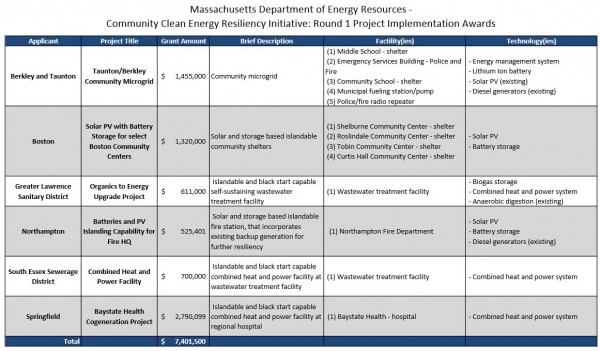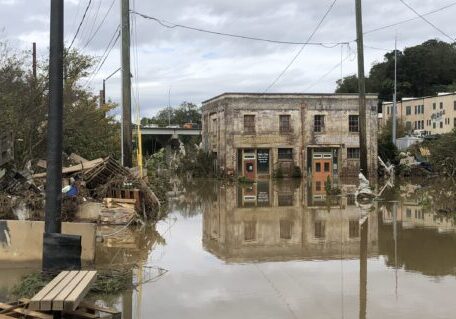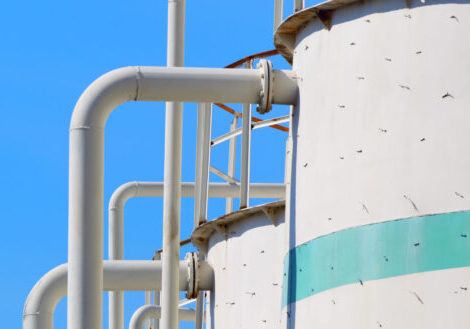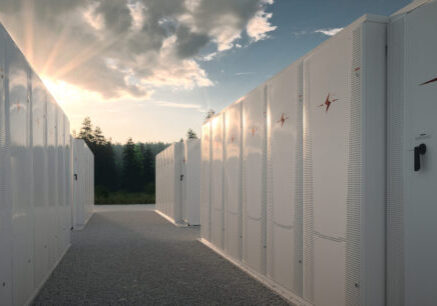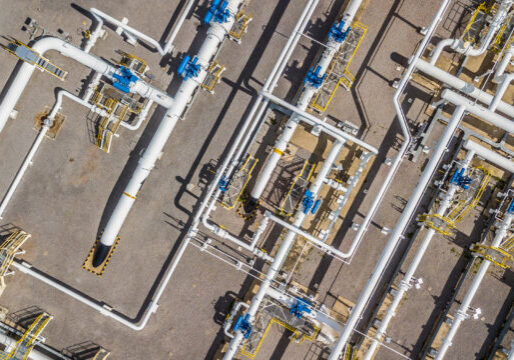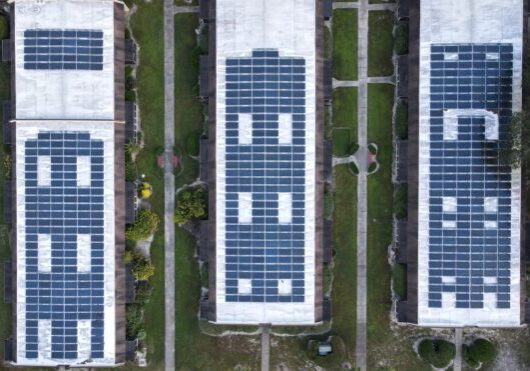October 10, 2014
Massachusetts DOER awards $7.4 million to critical infrastructure resilient power projects
By Todd Olinsky-Paul
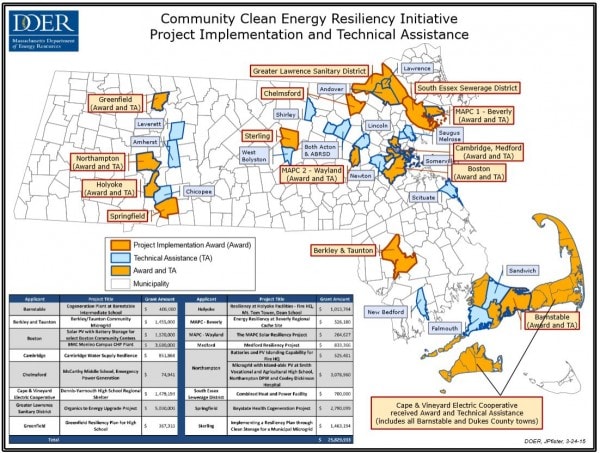
In the wake of SuperStorm Sandy, Clean Energy Group started the Resilient Power Project to support state and municipal efforts to deploy clean-energy, resilient power installations, and a number of states began designing programs to allocate public funds to this purpose.
Connecticut was first out of the gate with its microgrids pilot program. Now the Massachusetts Department of Energy Resources (DOER) and the Patrick administration have awarded $7.4 million to six municipal-led resilient power projects that will support critical infrastructure and services during natural disasters and other emergencies. These projects, once constructed, will keep electricity flowing to public shelters, wastewater treatment plants, and other critical community facilities when the electric grid goes down.
The awards are the first in a two-part, $40 million state grant program focused on using clean and renewable energy solutions to achieve municipal resilience. The program is funded by Alternative Compliance Payment (ACP) funds, which are collected from electrical retail suppliers that are unable to meet their compliance obligations under the state’s Renewable and Alternative Portfolio Standard programs. In addition to the six project grants, DOER has awarded 27 technical assistance grants to communities seeking funding to design resilient power projects. The communities receiving technical assistance awards may apply for project implementation grants in a second solicitation, for which awards will be announced later this year.
The project implementation awards include one microgrid, three combined heat and power (CHP) projects, and two solar PV projects with battery storage. The critical facilities to be supported include schools and community centers that serve as public shelters, police and fire stations, wastewater treatment plants, a municipal fueling station, and a hospital. The projects are located in Berkeley/Taunton, Boston, Lawrence, Northampton, South Essex and Springfield. More details may be seen in the accompanying map and table.
There are a number of significant innovations in the Massachusetts program that should provide a basis for similar programs in other states:
- Municipal-led Proposals: When it comes to critical infrastructure and resiliency, municipalities are often in the best position to identify and prioritize the need, as well as to implement projects that frequently involve municipal facilities such as water and wastewater treatment plants, public schools, community buildings, municipal fueling stations and others. Targeting grants to municipal-led projects engages the state’s cities and towns in the resiliency discussion, and helps to ensure the success of projects that are deployed.
- Technical Assistance Fund: Uniquely among the state resilient power programs announced thus far, the Massachusetts program includes a carve-out fund for technical assistance, to help municipalities define their needs and design project proposals. Municipalities often do not have in-house expertise in such advanced energy systems as solar + storage and microgrids, and may not be able to pay for the engineering expertise required to craft a project proposal. DOER put together a technical assistance team and encouraged municipalities to apply for a technical assistance grant in Round 1 of the solicitation. Those who were awarded TA grants in Round 1 are now eligible to apply for project implementation funds in Round 2.
- Casting a wide net: The Massachusetts program does not focus on a single technology, such as CHP, nor does it require a specific size of system, such as microgrids, which tend to be larger than some municipalities need or could support. This agnostic approach allows each project to be tailored to the need of the municipality that will host it.
We at Clean Energy Group look forward to providing a closer look at the six projects awarded grants in Round 1 of the Massachusetts Community Clean Energy Resilience Initiative. A webinar date will be announced soon. More information about the Massachusetts Clean Energy Resilience Initiative can be found at https://www.mass.gov/community-clean-energy-resiliency-initiative.





